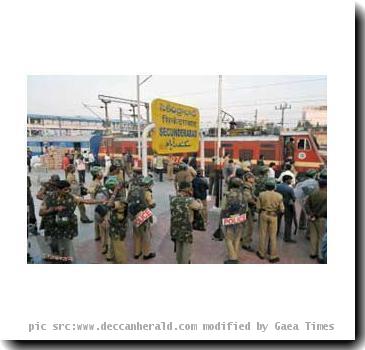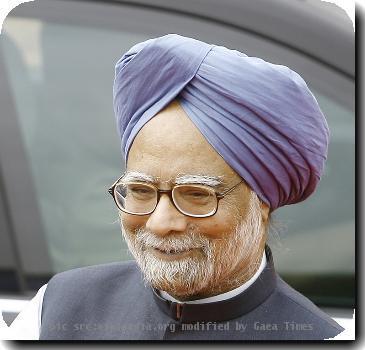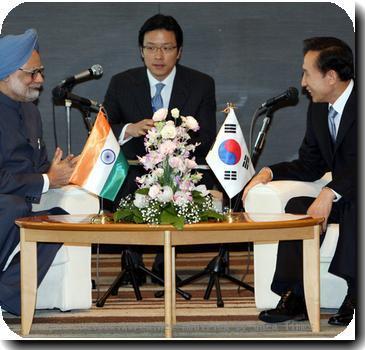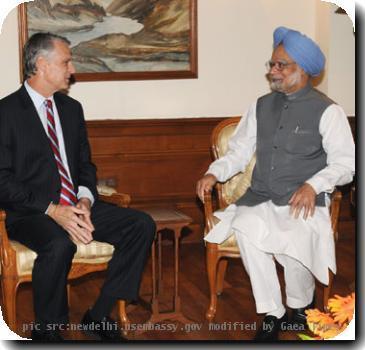Report: Maoist rebel offers ceasefire, talks if Indian government halts crackdown
By Muneeza Naqvi, APTuesday, February 23, 2010
Maoist rebel offers ceasefire, talks with India
NEW DELHI — India responded cautiously Tuesday to an offer by a top Maoist guerrilla leader for a cease-fire and talks with the government, with the home minister saying he would wait for a formal proposal before considering the offer.
Home Minister Palaniappan Chidambaram said he wanted a short, simple statement from the rebels without preconditions before responding to the offer by Kishenji, a senior Maoist leader in eastern India.
On Monday, Kishenji told television channel NDTV in the eastern state of Orissa that “Our revolutionary violence will stay on hold for as long as state terror is put on hold.”
If the government puts “violence on hold, not for 72 hours but for 72 days, then we will immediately stop our revolutionary violence,” Kishenji said.
That would require the government to halt its Operation Green Hunt offensive — aimed at flushing the militants out of their forest hide-outs — from Thursday until May 7.
Kishenji also called for “liberal intellectuals and human rights groups” to mediate talks between the rebels and the government.
But the government ruled out any preconditions for talks with the rebels.
“I would like no ‘ifs,’ no ‘buts’ and no conditions. Once I receive the statement, I shall consult the prime minister and other colleagues and respond promptly,” Chidambaram said in a statement.
Inspired by Chinese revolutionary leader Mao Zedong, the rebels have fought for more than four decades demanding land and jobs for farmers and the poor. About 2,000 people — including police, militants and civilians — have been killed in the past few years.
The rebels, who have tapped into the rural poor’s growing anger at being left out of the country’s economic gains, are now present in 20 of the country’s 28 states and have an estimated 10,000 to 20,000 fighters.
Prime Minister Manmohan Singh has called them India’s biggest internal security threat.
Some local governments in central and eastern India are unable to function because of rebel attacks.
In response to the government offensive, the insurgents have blown up train tracks, attacked railway stations and assaulted railroad employees. Last week, they killed two dozen police at a security camp in the village of Shilda, about 105 miles (170 kilometers) southwest of West Bengal’s capital, Calcutta.
Another group of suspected rebels later raided a village in eastern India and killed at least 12 people in an apparent act of revenge after several guerrillas were captured and turned over to police.
On Monday, a guerrilla fighter was killed when rebels attacked a police camp in West Bengal, said Manoj Verma, a local superintendent of police.
Tags: Asia, Geography, Guerrilla Warfare, India, Manmohan Singh, New Delhi, P Chidambaram, Rebellions And Revolutions, South Asia



